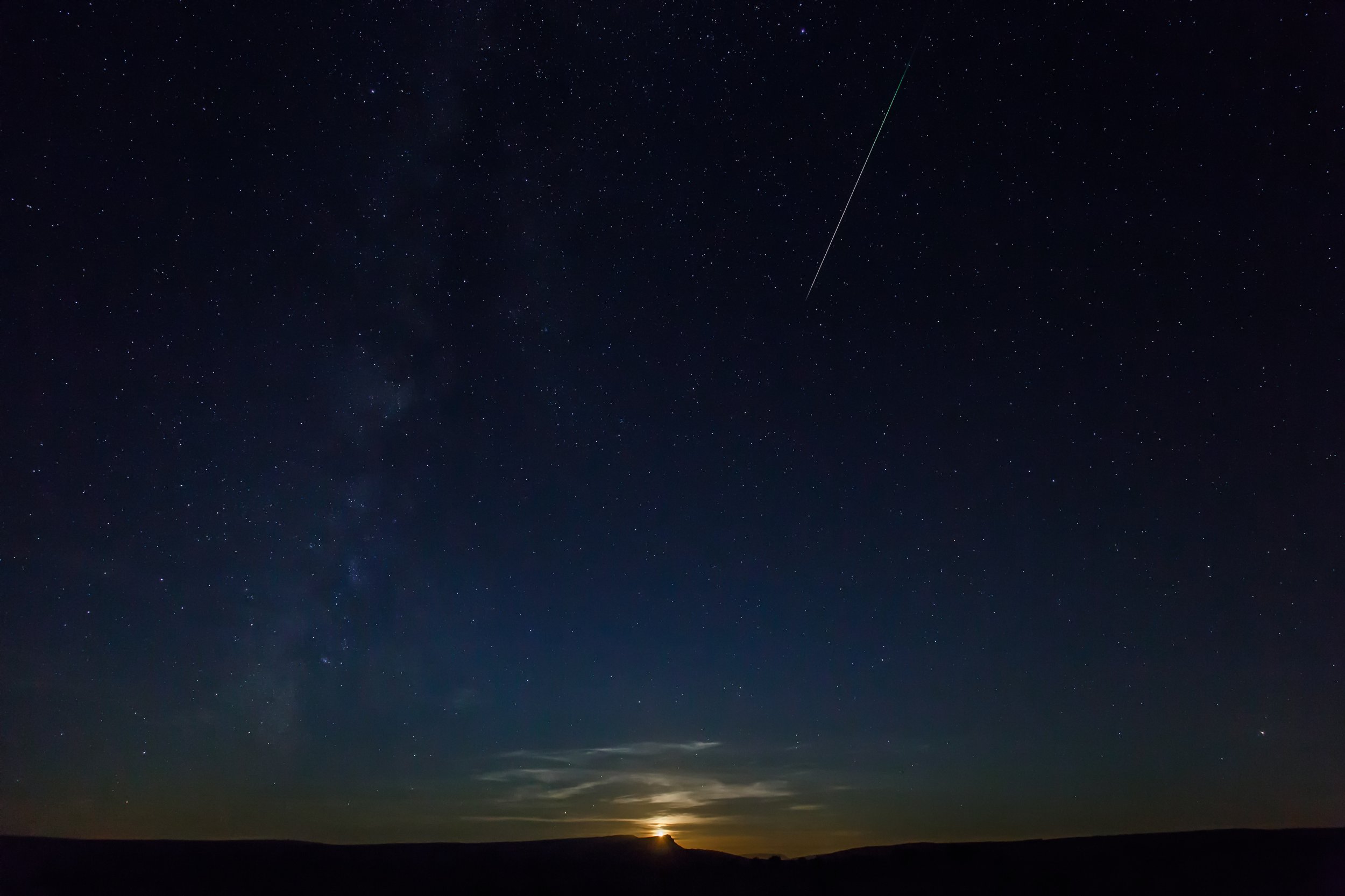
On Tuesday night, an asteroid measuring between 20 and 60 feet long will pass within 1.1 million miles of Earth, NASA reported. The asteroid will not hit Earth, but it's the second large space rock to pass this close to our planet in the past few weeks.
The asteroid, called 2017 YD7, is expected to pass by Earth at 7:40 p.m. ET, within 4.7 lunar distances (1.1 million miles from Earth). The asteroid also has an absolute magnitude of 27.3, a reference to its brightness. According to NASA, any space object that comes closer than 19.5 lunar distances is considered a Potentially Hazardous Asteroid (PHA), which means that 2017 YD7 easily falls into this category.
Related: Giant Asteroid To Shave Earth's Orbit Next Month: Here's Why NASA Labels It 'Potentially Hazardous'
Despite its scary categorization, this group of asteroids refers to how close the object comes to Earth, not the actual threat they pose for hitting our planet. In reality, PHAs are extremely common and most times we aren't even aware of their existence. For example, according to AstroWatch, on January 1, there were 1,872 PHAs detected around Earth, none of which will actually hit us.
An asteroid is a relatively small, rocky object (when compared to a planet) that orbits the sun. Although most asteroids in our solar system exist in the asteroid belt, a region between Mars and Jupiter, some, such as 2017 YD7, orbit a bit closer to Earth.
Related: 'Potentially Hazardous Asteroid' 32000 Phaethon Will Pass By Earth Sunday And You Might Catch A Glimpse
Previously, in mid-December, another "potentially hazardous" asteroid, 3200 Phaethon, came within 6.2 million miles of Earth, Newsweek reported.
While most asteroids do not hit Earth, it can happen. And when it does, the aftermath can be devastating. For example, the most popular theory surrounding the extinction of dinosaurs suggests that a giant asteroid about 6 miles wide hit Earth, The Planetary Science Institute reports. The impact caused a massive explosion, debris was thrown into the atmosphere and changed the climate, the theory goes. Many animals, such as the dinosaurs, could not handle this quick and extreme climate change and, as a result, died out.
In fact, our planet is absolutely pockmarked with evidence of past collisions, National Geographic reported. Lucky for us, it doesn't happen all that often, and in most cases, such as tonight's event, the asteroid will come close, but not too close to cause any major panic.
The next time 2017 YD7 will swing by Earth will be on June 16, 2155, so it truly will be a once in a lifetime experience.
Uncommon Knowledge
Newsweek is committed to challenging conventional wisdom and finding connections in the search for common ground.
Newsweek is committed to challenging conventional wisdom and finding connections in the search for common ground.
About the writer
To read how Newsweek uses AI as a newsroom tool, Click here.








